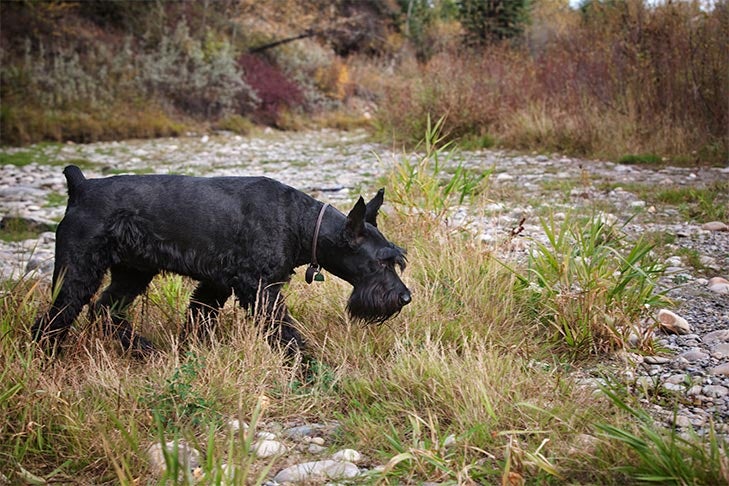Amazing tales of dogs returning home after traveling great distances have been told to all of us. While not all lost dogs will return home, most canines usually have the ability to do so Dogs simply aren’t equipped to handle the many obstacles that exist in the world.
After all, they have no concept of things like back roads, highways, or stop signs. There are a few ways that dogs can locate their way home if they become lost, including through sight and smell. To find out more about how dogs can return home if they get lost, continue reading.
What Can We Learn From Dogs’ Magnetic Homing Superpowers?
The researchers emphasize that additional study is required to fully comprehend how dogs use their capacity to detect magnetic cues. However, they also note that other animals have the same skill as dogs. It is well known that a wide variety of organisms possess a “magnetic sense,” i.e. researcher Kateina Benediktová claims that magnetoreception, which is used for spatial orientation and navigation “Pigeons and migratory birds [as well as sea turtles, amphibians, and insects] [are particularly well studied],” Although some wild mammals, like whales, bison, caribou, and zebras, have had their magnetic-based navigation studied, Benediktová continues, “dogs continue to be underrepresented in the field.

Why might humans have taken so long to recognize this facet of dog behavior? Could it be that we find it difficult to acknowledge that our beloved dogs still possess traits from their wild ancestors and that their typical modern lives are very different from those they would lead today?
Benediktová hypothesizes that although all dog breeds may be capable of receiving magnetic information, the sense is simply dormant in domesticated dogs. She exhorts dog lovers to acknowledge this and other characteristics of a dog’s distinct dogness. She says, “I would like to say something about dogs generally.” They are truly extraordinary creatures, and we should cherish, care for, and love them. However, the dog must continue to be the dog, with its own personality, mannerisms, and appearance. We should not try to change dogs to human. ”.
How Can a Dog Find Its Way Home?
Animals have different means of internal navigation. Seabirds, for example, are believed to be guided by the sun and stars. Sea turtles and pigeons have been found out to be able to orient themselves through the Earth’s north and south magnetic fields. In the case of dogs that have had to travel long distances to return home, it comes as no surprise that their strong sense of smell is their primary tool for determining which way to go. Along with a sort of internal visual map, this is how can a lost dog find its way back home.
Sense of Smell and Scent Markers
Dogs have up to a billion olfactory neurons in their system, which contributes to their exceptionally keen sense of smell. Human beings have only about 12 to 40 million neurons. Everywhere you take your dog, he registers all nearby scents in some sort of internal registry, where he can isolate and memorize various scents, but can a lost dog find its way home using only his sense of smell? This would enable him to recognize a particular scent in any environment.
In a similar manner, he also leaves scent residue in areas where he has been through the pads of his paws. Repeatedly taking him down the same trails helps him leave more scent markers on the trail. Dogs can extend the range of their scent markers through what researchers refer to as “overlapping circles of familiar scents” outside of the typical routes. These function similarly to cellular towers, connecting scent footprints.
When your dog is outside of its own scent range, he should be able to detect a scent from the adjacent circle and follow it to a more recognizable object, such as a tree, a light post, or even a person. He picks up these scent indicators that might aid in his orientation.
FAQ
What are the chances of a dog finding its way home?
People are more likely to step in when a community or outdoor cat is present rather than a roaming dog. According to Lost Pet Research & Recovery, 93% of lost dogs are found alive, and 20% of them find their way home by themselves.
Do dogs return home when they run away?
Your dog might even come back by themselves, using scent to direct them. Even the most domesticated dogs are capable of making long journeys while surviving on scraps of food and water until they return home. Fear not. Your chances of finding your dog again are excellent.
How far can a dog travel when lost?
Young, strong, and large dogs can run five miles or more. Small dogs might only be able to travel a half-mile. Most dogs can be found within a two-mile radius of their home, especially since they rarely run for long distances in a straight line, regardless of how strong or fast they are.
How do dogs feel when they are lost?
Many dogs, even those who are not typically afraid at home, become terrified when they lose their way. One of the worst things you can do is CALL a stray, loose, or panicked dog. Some dogs will eventually calm down and then approach people, but other dogs will continue to run from everyone, including their owners.